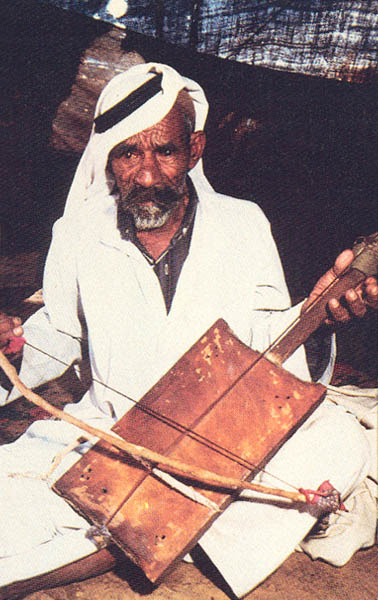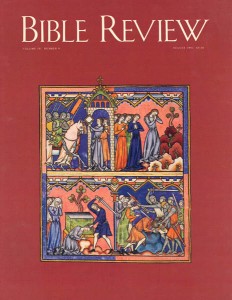Curses in Verses
Sidebar to: How Desert Culture Helps Us Understand The Bible

During the war in the Gulf, traditional Bedouin poetry became a weapon in the arsenal of Arabs confronting each other. For hours on end, Saudi, Iraqi and Kuwaiti (in exile) television broadcast readings by poets. Like Balaam, they were summoned to curse in rhyme, and their repertory was the pièce de rèsistance of the propaganda feast served up by the local media each day.
The two Arab camps traded insults over the airwaves in archaic language, following strict rules, and in rhyme.
Thus, this ancient Semitic tradition lives on to our day in the culture of Bedouin Arab societies. For centuries, the most adored poets in the canon of Arabic literature have been not the writers of love poems (though there has been no lack of these) but rhymesters such as Ta‘abatta Sharran (loosely, “He Who Carried a Snake Under His Arm”), who in the sixth century won this colorful epithet with his flair for offense, insult and scathing doses of verbal venom. He was not alone. A whole gallery of ancient poets who specialized in the art of cursing and blessing are known to almost every Arab schoolchild.
Already a library member? Log in here.
Institution user? Log in with your IP address.

